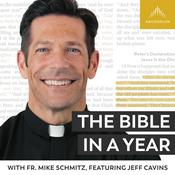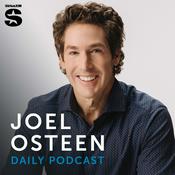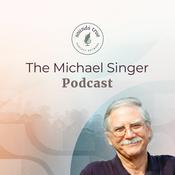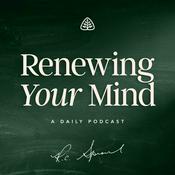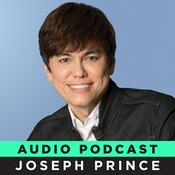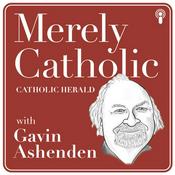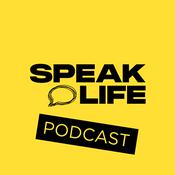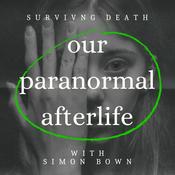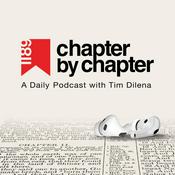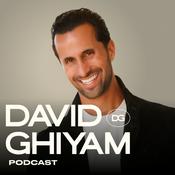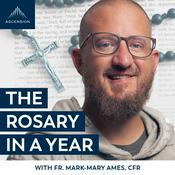911 episodes

Peace is Available Now - David Lewis
21/12/2025 | 54 mins.
When will we realize that peace isn’t something we create, but something already here—quietly waiting for us?That’s the thread David Lewis follows in this winter‑solstice talk, weaving together poetry, Buddhist teachings, and reflections on the natural world. He begins by exploring how solstice traditions mirror dharmic values: stillness, silence, and the movement from darkness toward light.Drawing on images from Patricia Fargnoli’s poem Winter Grace, David invites listeners to recognize how truth often emerges in quiet, slowed‑down seasons. He then connects this to foundational Buddhist ideas—especially dukkha as “unreliability”—and explains how acknowledging life’s darkness is a necessary prelude to awakening. Along the way, he highlights traditional practices such as vassa (the monsoon retreat), uposatha observance days, and the universal human need for a Sabbath‑like pause.David looks at cultivating peace of mind as both a personal refuge and a contribution to the wider world. He emphasizes that peace isn’t the absence of difficulty but the ability to remain steady within it:Letting go as the path to peace, illustrated through Ajahn Chah’s famous lines about releasing a little, a lot, or completely.Peace as the mind’s natural state, supported by the Buddha’s teaching on the luminous mind.Attachment and distraction as the opposites of peace, and the practice of gently releasing both.Gratitude as a happiness practice, echoing Aesop and modern monastics.Joy as the unfolding result of practice, expressed through Bhikkhu Analayo’s “progressive refinement of joy.”David closes with a reminder from Dōgen that life is fleeting and awakening is always available now. His solstice wish for the community is simple and heartfelt: may they rest in the natural ease of body and mind, and may all beings be free from needless suffering.______________David Lewis has been following the dharma path for 50 years. He has a degree in comparative religious studies and is a graduate of Spirit Rock Meditation Center’s Advanced Practitioners Program. David shares the dharma at several sanghas, including Mission Dharma, Insight Upper Market, and the Gay Buddhist Fellowship in San Francisco. ______________ To support our efforts to share these talks with LGBTQIA audiences worldwide, please visit https://gaybuddhist.org/There you can: Donate Learn how to participate live Find our schedule of upcoming speakers Join our mailing list or discussion forum Enjoy many hundreds of these recorded talks dating back to 1996 CREDITSAudio Engineer: George HubbardProducer: Tom BrueinMusic/Logo/Artwork: Derek Lassiter

Kubari: Generosity with Awareness - Marcia Lieberman
14/12/2025 | 44 mins.
What does it mean to give something freely, without expecting anything in return? In this talk, Marcia Lieberman introduces us to the Japanese word kubari—a term for paying attention to others, as well as a twig used in flower arranging. Drawing from both cultural insight and Buddhist teachings, she shares how kubari expresses a kind of mindful generosity that is not transactional, but attuned and spontaneous. Through personal reflections and references to traditional stories, Marcia invites listeners to reconsider the depth behind acts of giving, suggesting that true generosity arises from awareness, not obligation.Marcia discusses how kubari is rooted in presence and observation. One must first see what is needed in order to respond with kindness. She contrasts this with the Western notion of giving that often involves expectations, agendas, or a sense of scarcity. Key ideas she explores include:Kubari as a practice of attention: noticing the world around you and recognizing opportunities to give.Giving without attachment: letting go of the need for recognition or reciprocity.Everyday generosity: how small, thoughtful acts—like offering an umbrella or a warm meal—can become meaningful expressions of care.Cultural nuance: how Japanese values and aesthetics shape the concept of giving differently from Western frameworks.Her message is a gentle reminder that generosity is not about quantity—it’s about heart, timing, and connection.______________ Marcia Lieberman is a long-term Buddhist practitioner who has been affiliated with San Francisco Zen Center since 1989, having resided at all three practice centers. She was Shuso (Head Student) at Green Gulch Farm for the Spring 2017 Practice Period. As an artist, her affinity for beauty and form in ceremony has been a guiding part of her practice. Marcia taught in the photography departments at UC Berkeley and California College of the Arts. In her editorial work she was noted for photographing famous and noteworthy women. Having graduate degrees both in Fine Arts and Buddhist studies, Marcia is able to draw from both of these backgrounds in her work. She recently published her third photographic book, Clean Slate—Images from Dogen’s Garden, with commentaries by Dogen scholars. ______________ To support our efforts to share these talks with LGBTQIA audiences worldwide, please visit https://gaybuddhist.org/There you can: Donate Learn how to participate live Find our schedule of upcoming speakers Join our mailing list or discussion forum Enjoy many hundreds of these recorded talks dating back to 1996 CREDITSAudio Engineer: George HubbardProducer: Tom BrueinMusic/Logo/Artwork: Derek Lassiter

Letting Go Into Wholeness - Jokai Blackwell
16/11/2025 | 59 mins.
In this quietly powerful talk, Jokai Blackwell reflects on how Zen practice invites us into a deeper intimacy with life — not by escaping discomfort, but by softening our resistance to it. He shares personal stories and teachings from Zen and early Buddhism that reveal how clinging to control or certainty only increases suffering.Instead, Jokai encourages listeners to cultivate a practice of surrender: of returning, again and again, to the grounded experience of the body, breath, and present moment. This embodied awareness becomes a gateway to wholeness — not a fixed state, but a dynamic unfolding that includes everything, even the messy and uncertain.He outlines several key teachings to support this shift toward presence:Wholeness is not perfection: It's the capacity to include and be with whatever arises.Grasping and aversion fragment our experience: They reinforce the illusion of separation.The body is a reliable refuge: Returning to bodily sensations helps us drop into direct experience.Letting go is active, not passive: It's a courageous practice of turning toward, not away.Practice is relational: Awakening unfolds in connection — with self, others, and life itself.Jokai’s words are both spacious and grounded, inviting listeners into a felt sense of trust — not in outcomes, but in the wisdom of showing up fully to the life that’s already here.______________Jokai moved to Southern California from the UK in 2000 to study residentially at Yokoji Zen Mountain Center. During his formal training, Jokai completed the full Zen koan curriculum. In 2014, he received Dharma Transmission (authorization to teach) in the White Plum lineage of Zen Buddhism from Charles Tenshin Fletcher Roshi, and Inka (final approval) in 2022.Jokai emphasizes the direct experience of awakening using contemporary language and time-honored methods. He is the Guiding Teacher for Long Beach Meditation, and serves as a member of Insight Community of the Desert's Guiding Council. After completing 20 years of residency at Yokoji Zen Mountain Center, he now lives in Palm Desert with his family. ______________ To support our efforts to share these talks with LGBTQIA audiences worldwide, please visit https://gaybuddhist.org/There you can: Donate Learn how to participate live Find our schedule of upcoming speakers Join our mailing list or discussion forum Enjoy many hundreds of these recorded talks dating back to 1996 CREDITSAudio Engineer: George HubbardProducer: Tom BrueinMusic/Logo/Artwork: Derek Lassiter

Becoming Just Awareness - Dorothy Hunt
09/11/2025 | 1h
What does it mean to “be awareness” rather than simply observing it? Dorothy Hunt invites us to see awareness not as something separate from thoughts, feelings, or experiences, but as the very ground of being that is already present. Grounding her reflections in both tradition and poetry, she illustrates how awareness reveals itself in every moment, whether through beauty, suffering, or the ordinary flow of life. Her teaching emphasizes that awakening is not about bypassing human experience but about embracing it with intimacy and compassion.Dorothy weaves together Buddhist wisdom, Zen stories, and personal reflections to show how awareness can meet even the most difficult aspects of life. She highlights key ideas such as:The two arrows: the unavoidable pain of life and the suffering added by our interpretations.Layers of experience: from rage to vulnerability, awareness can hold them all without judgment.Awakening and growing up: two sides of the same coin, integrating transcendence with human healing.The “pathless path”: each person’s journey is unique, made by walking.Ultimately, she reminds us that awareness is not elsewhere—it is here, in the very act of living.______________Dorothy Hunt serves as spiritual director of Moon Mountain Sangha and was the founder of the San Francisco Center for Meditation and Psychotherapy. She is the author of Only This!, Leaves from Moon Mountain, and Ending the Search: From Spiritual Ambition to the Heart of Awareness, as well as articles published on nondual wisdom and psychotherapy.She teaches at the request and in the spiritual lineage of Adyashanti, who invited her to share the dharma in 2004. Dorothy has a long and deep connection to the teachings of Ramana Maharshi and the nondual teachings of Zen, Advaita, and the Christian mystics. She invites a deep welcoming of the human expressions of the mystery. A licensed psychotherapist since 1967, Dorothy has now retired from her private practice. She is a mother and a grandmother. For more information, please visit: https://dorothyhunt.org or Dorothy Hunt - Moon Mountain Sangha on YouTube. ______________ To support our efforts to share these talks with LGBTQIA audiences worldwide, please visit https://gaybuddhist.org/There you can: Donate Learn how to participate live Find our schedule of upcoming speakers Join our mailing list or discussion forum Enjoy many hundreds of these recorded talks dating back to 1996 CREDITSAudio Engineer: George HubbardProducer: Tom BrueinMusic/Logo/Artwork: Derek Lassiter

The Multiplicity of Awareness - Eugene Cash
02/11/2025 | 1h 1 mins.
What does it mean to truly awaken—and how do we live with full awareness in every moment, even in the face of impermanence? Eugene Cash's warm, playful, and deeply sincere style invites us into a rich exploration of mindfulness, death, and the immediacy of life. Drawing from the Four Foundations of Mindfulness, Eugene emphasizes the experiential nature of awareness, encouraging us to feel our bodies, notice our breath, and recognize the fleeting nature of each moment. He shares personal stories, including a near-death experience and the dissolution of San Francisco Insight to illustrate how impermanence can be a gateway to freedom.Eugene’s teaching is grounded in both classical Buddhist texts and lived experience. He references the Satipatthana Sutta (MN 10), Zen master Dogen, Longchenpa of the Dzogchen tradition, and Shantideva, offering poetic and powerful quotes that illuminate the path to awakening, focusing on:Mindfulness of posture, breath, and bodily elements (earth, air, fire, water)Awareness in all activities—“no one at Safeway has to know you’re meditating”The normality of death and the intoxications of youth, health, and lifeAwakening as “springing into being” and “the freshness of reality”The insight that freedom arises when we stop clinging to anythingHe offers us a gentle nudge to wake up to the miracle of being here, now.______________Eugene Cash is the founding teacher of the San Francisco Insight Meditation Community of San Francisco which ended in October 2025 after more than 30 years. He now teaches at Spirit Rock Meditation Center and leads intensive meditation retreats internationally. His teaching is influenced by both Burmese and Thai streams of the Theravada tradition as well as Zen and Tibetan Buddhist practice. He is also a teacher of the Diamond Approach, a school of spiritual investigation and self-realization developed by A. H. Almaas. Learn more at https://www.insightdharmacenter.org/ ______________ To support our efforts to share these talks with LGBTQIA audiences worldwide, please visit https://gaybuddhist.org/There you can: Donate Learn how to participate live Find our schedule of upcoming speakers Join our mailing list or discussion forum Enjoy many hundreds of these recorded talks dating back to 1996 CREDITSAudio Engineer: George HubbardProducer: Tom BrueinMusic/Logo/Artwork: Derek Lassiter
More Religion & Spirituality podcasts
Trending Religion & Spirituality podcasts
About The Gay Buddhist Forum by GBF
Listen to The Gay Buddhist Forum by GBF, The Bryce Crawford Podcast and many other podcasts from around the world with the radio.net app

Get the free radio.net app
- Stations and podcasts to bookmark
- Stream via Wi-Fi or Bluetooth
- Supports Carplay & Android Auto
- Many other app features
Get the free radio.net app
- Stations and podcasts to bookmark
- Stream via Wi-Fi or Bluetooth
- Supports Carplay & Android Auto
- Many other app features


The Gay Buddhist Forum by GBF
download the app,
start listening.






